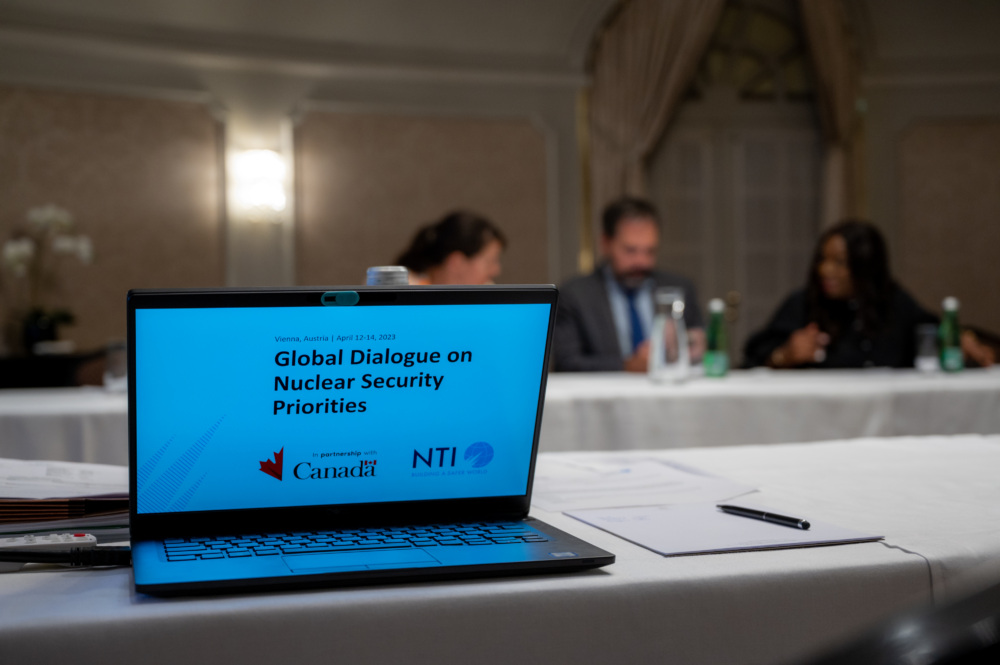Despite significant progress made during the Nuclear Security Summit process, there is no global system for securing all weapons-usable nuclear materials—the highly enriched uranium and plutonium needed to build a nuclear bomb.
The Nuclear Threat Initiative has convened government officials, experts, representatives from international organizations, and industry leaders since 2012 to define what a truly comprehensive and effective global nuclear security system would look like and has developed related recommendations. This paper is the culmination of this work and lays out a vision for strengthening the global nuclear security system and the steps needed to achieve it, including after the summit process ends.
Read the Foreword by Joan Rohlfing, NTI President and Chief Operating Officer:
Since its inception, the Nuclear Threat Initiative (NTI) has encouraged governments to take ambitious action to reduce global threats posed by weapons of mass destruction, including the threat of catastrophic nuclear terrorism. We know that acquiring a nuclear weapon or the nuclear-explosive material to make one is the hardest step for terrorists to take and the easiest step for us to stop. By contrast, every subsequent step in the process—building the bomb, transporting it, and detonating it—is easier for the terrorists to take and harder for us to stop. The bottom line: Securing nuclear materials at the source is the most effective, least expensive way to prevent nuclear terrorism.
In 2010, after President Barack Obama hosted the first Nuclear Security Summit in Washington, DC, NTI identified key areas in which governments had not yet begun to make sufficient progress. Despite the unprecedented attention on nuclear security and the impressive set of commitments made by states at the first summit, there was no agreement on what steps are essential for nuclear materials security, and no mechanism for tracking progress. Without a way to measure progress, there was no way to hold states accountable for implementing their summit commitments or their nuclear security responsibilities.
To help fill these gaps, NTI embarked on two parallel and complementary projects. In 2012, NTI launched the Nuclear Security Index to measure nuclear security conditions around the world. This provided a baseline against which two subsequent editions of the Index (the most recent in January 2016) have been able to track progress and identify needed actions. Importantly, the first Index also proposed a framework of key measures that all states should take to improve their nuclear materials security. One of the key recommendations in the 2012 Index was that states should begin an international dialogue to develop common “rules of the road” for how all nuclear materials should be secured globally. Given the absence of such a dialogue in official circles, NTI launched the Global Dialogue on Nuclear Security Priorities, a series of meetings convening experts and officials from 29 governments, nuclear industry, international organizations, and the nongovernmental community to build consensus on the elements of an effective and comprehensive global nuclear security system. This invaluable process helped NTI understand perspectives from a range of countries and provided a forum to work together to define and shape a set of practical solutions that would inform the Nuclear Security Summit process.
This report is the culmination of NTI’s analysis of ways to strengthen the global nuclear security system, informed by six Global Dialogue meetings and countless discussions with government officials and experts over four years. As the summit process draws to a close, we urge leaders to continue to take key steps toward building a global system and to support a continuing mechanism for engagement on this critical task after the summit process ends.
NTI thanks all the officials and experts who have participated in the Global Dialogue over the past four years, particularly those who contributed analytic papers and presentations at meetings.
This initiative and our work to prevent nuclear terrorism would not be possible without generous donations from our funders, including the John D. and Catherine T. MacArthur Foundation, the Peter G. Peterson Foundation, and the Carnegie Corporation of New York—as well as ongoing support from Warren Buffett and NTI Co-Chairman Ted Turner.

